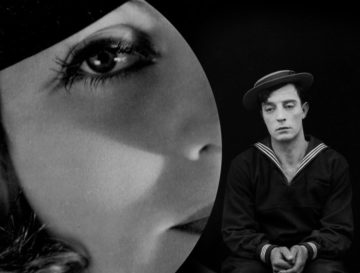Christina Newland in The Baffler:
 LIKE SO MANY YOUNG WOMEN of the immediate postwar years, my grandmother moved to Manhattan to seek a future. Born in rural West Virginia, the daughter of immigrant farmers, she snagged a job at a New York department store which as of today has been shuttered for half a century: Best & Company. It was there on Fifth Avenue, on a lunch break, that she saw Greta Garbo. She never forgot it. She described it like this: “She was very tall, in a big hat pulled down over her eye. She saw people staring, but she never stopped, and she never smiled.”
LIKE SO MANY YOUNG WOMEN of the immediate postwar years, my grandmother moved to Manhattan to seek a future. Born in rural West Virginia, the daughter of immigrant farmers, she snagged a job at a New York department store which as of today has been shuttered for half a century: Best & Company. It was there on Fifth Avenue, on a lunch break, that she saw Greta Garbo. She never forgot it. She described it like this: “She was very tall, in a big hat pulled down over her eye. She saw people staring, but she never stopped, and she never smiled.”
Garbo, once the preeminent goddess of the silver screen to which all other stars referred, is more likely to register to younger audiences today as a signifier of the vague, dusty glamour of a bygone age. But even when my grandmother glimpsed her in the late 1940s, Garbo had already withdrawn from the public eye. Having told the world with breathy certainty that she wanted to be alone, she disappeared from film after the Second World War. There was always something special about this icon of remote ennui on the screen; a movie star who had an eloquence of mien beyond most any other. Garbo radiated mystery because she was genuinely mysterious: self-possessed and private in a way that bordered on the compulsive. It only added to her mystique.
More here.
